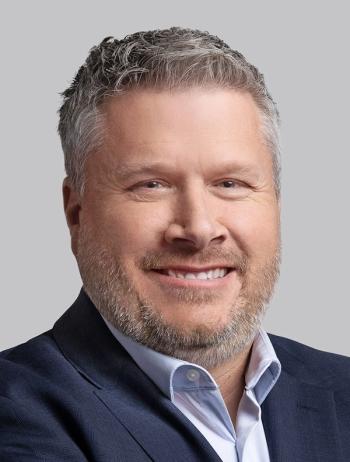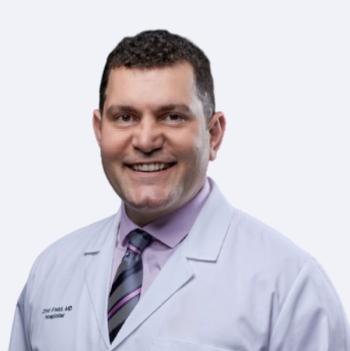
Why healthcare needs to intervene in the opioid crisis
We spoke with ChangeMaker John Hsu, MD, a Whittier, California-based anesthesiologist, on the need to intervene in the opioid crisis.
We spoke with
John Hsu, MD: What I found is that patients are in pain, but they also have other reasons for pain. There’s no one reason a patient has pain. There’s multiple reasons for pain. And the government asks us to treat pain with one pill, which I don’t think is the proper way of doing it. I think if patients have pain they also have anxiety and they also have depression. So I think that if we were going to treat the opioid crisis we need to make a definitive diagnosis that this pain actually has pain, as opposed to this patient has pain and anxiety and depression.
MORE FROM DR. HSU:
I’m proposing a safer opioid, meaning that I can give these patients the opioid and they won’t die because of functional antagonism. The opioid treats the pain by binding to the mu receptor. My drug binds to another receptor that treats the side effect of the opioid, which is respiratory depression.
I’m at a stage of my life where I want to make a difference. I want to save lives. If I can do this as a part of my task before I retire, before I give up medicine, where I can save lives, then I think I’ve made a difference. This will be a game changer.
When you get a bottle of narcotics from a doctor, the doctor writes the prescription, the pharmacist fills the prescription. You get a tan bottle with a white cap. That bottle is unsecure, anybody can open it. Kids can open it, take one pill, or 10 pills, and die. So now what I’ve designed is a mobile app that uses fingerprint, QR code, personal code, and encryption, to attach to a mobile device so you only get one to two pills every four to six hours.
The correct treatment of opioid addiction is cognitive behavioral therapy. And by doing the iPill you change behavior so they only take the pill as directed. There’s no more noncompliance of pills of people taking 10 pills and dying.
When I went to the FDA, one of the representatives asked me, ‘What happens if your Quivive pill fails, if a patient takes too many? What solution do you have for that? And I thought about it. And I was thinking outside the box. And I decided the best thing to do is what hospitals do, And what pharmacies do. They take their opioids and put them in a secure location. They don’t allow patients to take 10 pills at once. Why don’t we have that at home? You get a bottle of pills, you can take one pill or the whole bottle of pills. By decreasing the ability to take a whole bottle of pills, I enhance the effectiveness of the Quivive combo product.
What I really want in life is satisfaction of my judgment. And that’s what’s really driving me. I want to make sure that what I’ve thought about can save lives. It’s not about making money or anything like that. It’s about making the right choices to save lives. And that’s why I became a doctor.
Newsletter
Stay informed and empowered with Medical Economics enewsletter, delivering expert insights, financial strategies, practice management tips and technology trends — tailored for today’s physicians.






